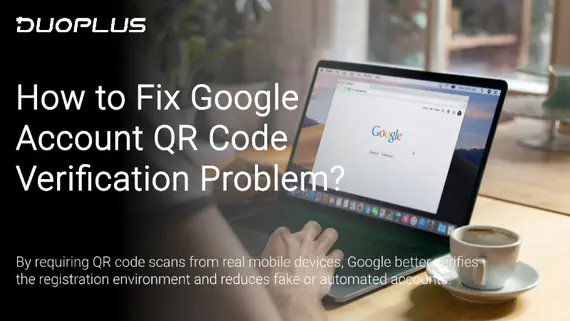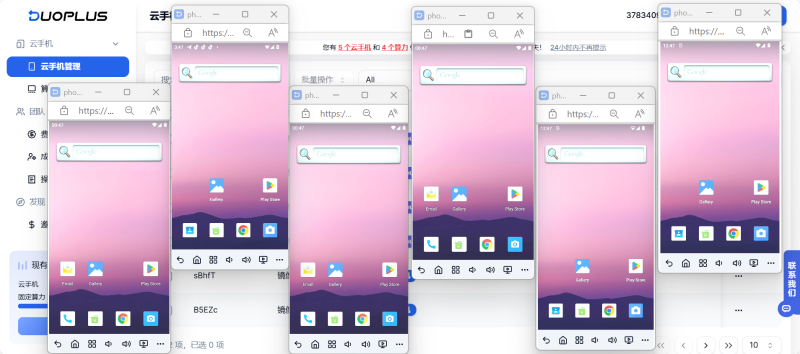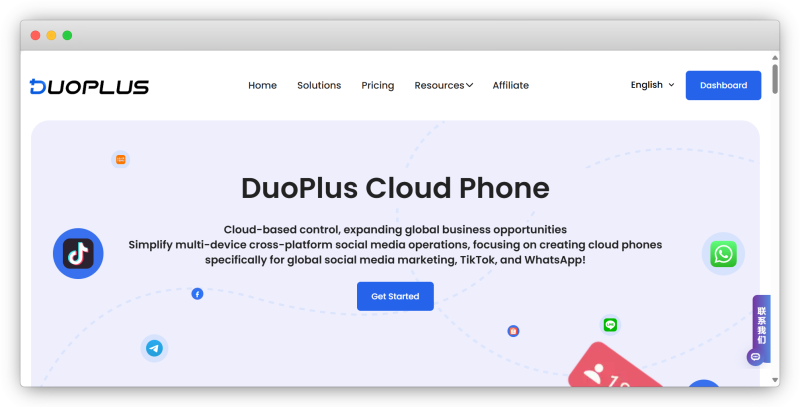
Google Account Stuck on QR Code Verification? How to Fix It (2026)
Following the official launch of Gemini Pro 3.1, Google is accelerating its dominance in the AI sector. From development …
Table of Contents
DuoPlus has found that many users have the misconception that "cloud phones and emulators are the same thing." This article provides a detailed explanation of the concepts, usage scenarios, and real differences between cloud phones and emulators, helping users choose the right tool to advance their business.

A cloud phone is a virtual phone running on the cloud, equipped with real ARM hardware, located in a data center for remote user access, and almost identical in structure to a real phone.
As long as there is a network connection, users can operate the cloud phone on different devices (phones, computers, etc.), easily install and manage apps, run smoothly 24/7 without overheating issues, and without consuming data or battery.
Most cloud phones support multi-instance operation, and each cloud phone can run independently, efficiently managing work. Additionally, data is stored in the cloud, facilitating backup and recovery, enhancing data security to a certain extent. Cloud phones can also replace multiple real devices, reducing equipment costs.

An emulator is a virtual software or hardware tool installed on local devices for use, capable of simulating a computer system or device.
Android emulators are the closest to cloud phone functionality, allowing multiple Android environments to be simulated on a single computer for app usage, but the underlying hardware is X86, completely different from the ARM architecture of phones.
Emulators rely on local hardware devices (usually computers) to run, consuming device resources during use, and data is stored on the device. Currently, there are both free and paid emulators on the market, with relatively low prices, but the configuration of the corresponding physical computer is more expensive.
Higher Security Index
Cloud phones are equipped with real ARM chips, with improved parameters that mimic real phones, and can use proxy IPs and one-click new devices to reduce the risk of being detected by certain apps, enhancing security.
Emulators are designed to run Android programs on X86, simulating a virtual system, making them more easily detected by some applications.
Higher Number of Instances
Cloud phones rely on powerful cloud computing services, allowing management of multiple devices simultaneously, with low requirements for the user device; emulators are limited by the computer's configuration, requiring strong hardware for multi-instance operation, and low computer configuration can cause emulator lag.
Convenience of Use
Cloud phones can be used on both phones and computers, running on cloud computing for flexible operation anytime, anywhere; emulators generally run on computers, not well-suited for various scenarios.
The above is DuoPlus's explanation of the differences between cloud phones and emulators, allowing users to choose the right tool based on their business needs to assist in business operations.

Enter the link https://duoplus.saaslink.net/blogboke to register and receive a one-month cloud mobile service,you can it directly! Additionally, you can find【DuoPlus DuoPlus】 on Telegram, where you can obtain an exclusive redemption code and gain trial access!
Telegram:https://t.me/DuoPlus6
DuoPlus Cloud Phone
Protect your multiple accounts from being

Following the official launch of Gemini Pro 3.1, Google is accelerating its dominance in the AI sector. From development …

TIRED OF THESE BOTTLENECKS? ❌ Running account farms only to be halted by relentless Captcha triggers? ❌ Grinding on …
No need to purchase multiple real phones.
With DuoPlus, one person can operate numerous cloud phones and social media accounts from a single computer, driving traffic and boosting sales for you.
